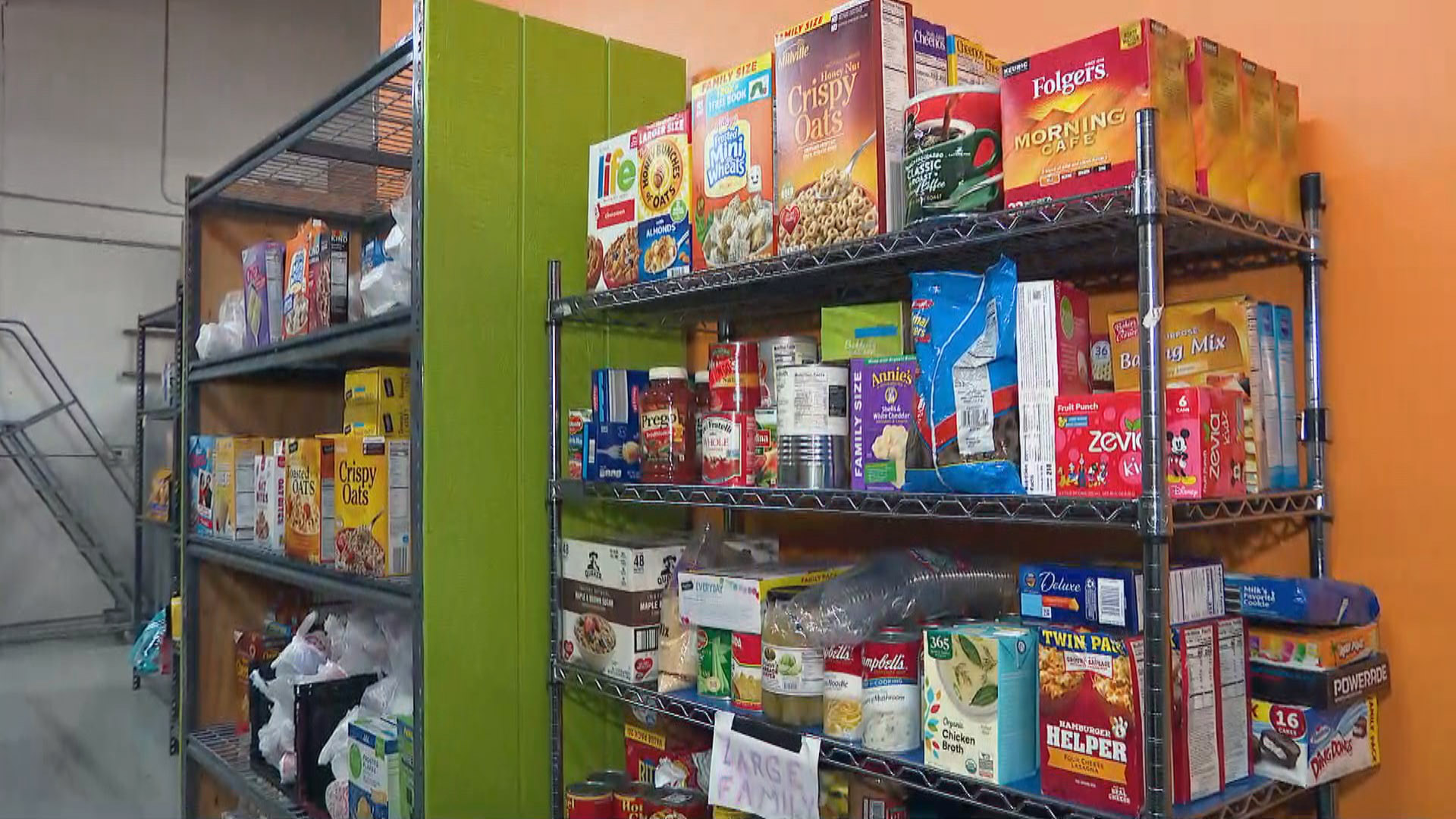
This story is part of WTTW’s Firsthand initiative exploring poverty in Chicago.
Food insecurity continues to be a problem for some Chicagoans, and it was made worse by the pandemic.
Thanks to our sponsors:
According to the Chicago Food Equity Agenda, in late 2020, 19% of people in the Chicago metro region faced food insecurity. That figure rose to 29% in Latino communities and 37% in Black communities.
The city recently announced that Ruby Ferguson, an employee of the Greater Chicago Food Depository, would be its first ever food equity policy lead. In her new role, Ferguson will work alongside community partners to create an equitable food system in Chicago.
One of those partners is Anton Seals Jr., the co-founder and lead steward at Grow Greater Englewood.
“I think agriculture and the entire food system can work together and can be used as a strategy to create more community wealth-building opportunities to make sure that communities have access to fresh food,” Seals said.
He’s seen firsthand the benefits of growing food locally. His organization provides support to farmers across the city. On top of having access to nutrient-rich food, he said there’s a larger community health impact, like improving air and soil quality.
Food insecurity can have a big impact on community health, said Angela Odoms-Young, associate director of research and education with the UIC Office of Community Engagement and Neighborhood Health Partnership.
She notes three components to the relationship between food and health: a physiological component that relates to the benefit of having access to fruits and vegetables or nutrition education; a mental health component that addresses possible anxiety and depression around food insecurity; and an economic component, which can be impacted by living in a neighborhood with vacant buildings instead of grocery stores or having to drive for many miles to get food.
Odoms-Young says while there needs to be access to food through local food distribution programs, there also has to be a focus on educational and labor policies, economic redistribution and community investment.
“We need to create policies and systems to reinvest in community, because the human capital is there, the potential is there, and we can’t act like it’s not there,” Odoms-Young said.
Thanks to our sponsors:
Thanks to our sponsors:
https://ift.tt/38ovLwv
food

Tidak ada komentar:
Posting Komentar